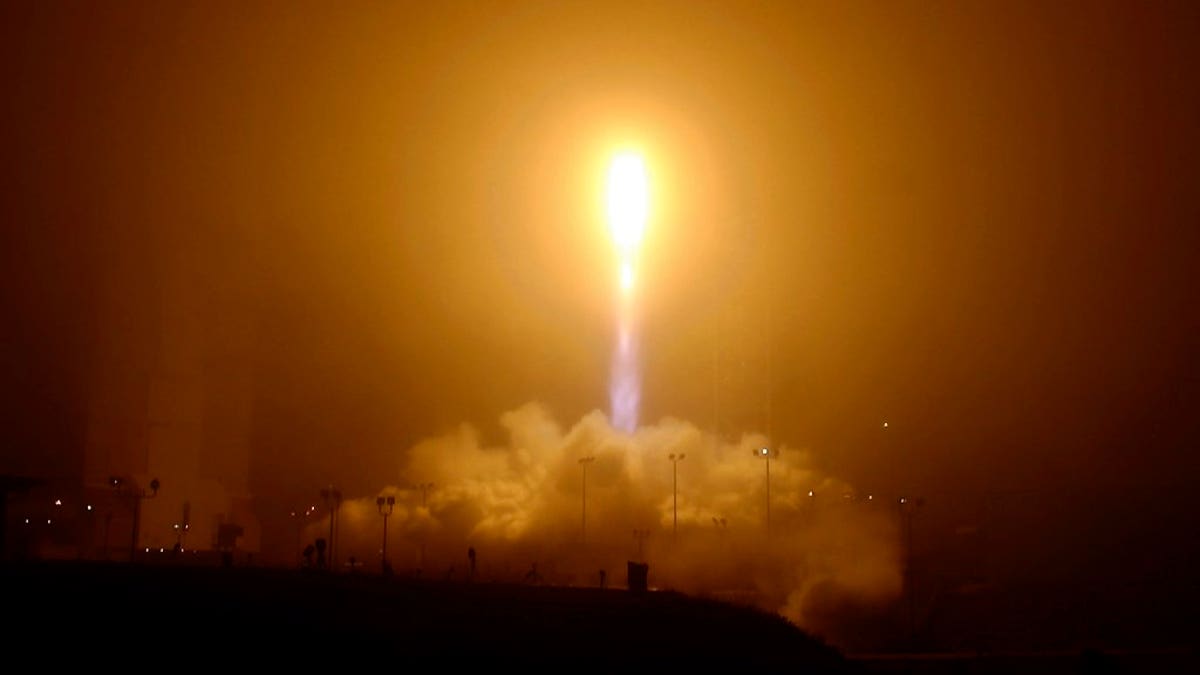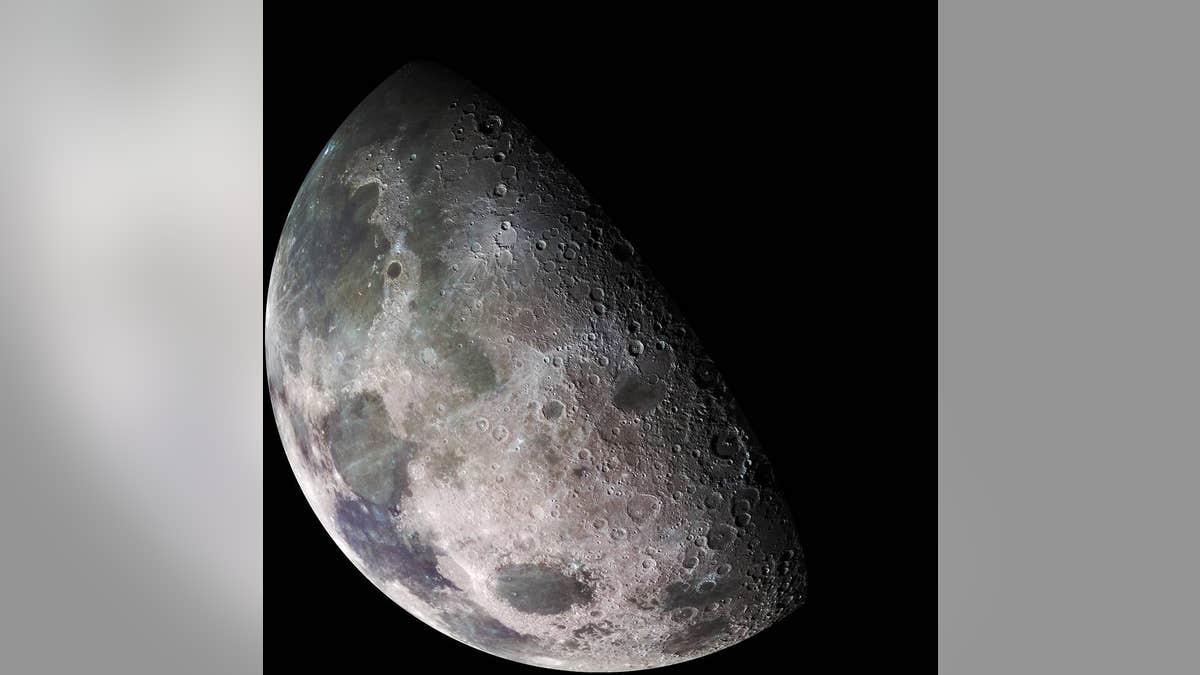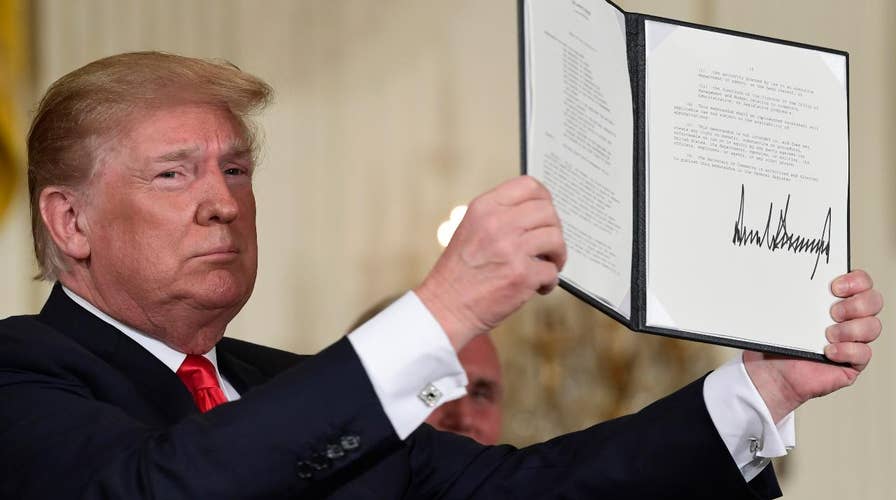Trump’s ‘space force’: What does it entail?
President Trump announced a directive for the Pentagon to create a “space force” that will serve as a sixth branch of the military. What will this new force actually do?
President Trump’s order for the Pentagon to establish a “space force” was met with everything from confusion and doubt to amazement and excitement -- not to mention more than a few Star Wars-themed memes and tweets.
But as the uproar from Monday's announcement dies down, the hard part for leaders inside the Pentagon begins: How to create a new – and unprecedented – branch of the armed services.
“There are a lot of questions that need to be answered,” John Crassidis, a professor of mechanical and aerospace engineering at the University of Buffalo, told Fox News. “They’ll need to sort of out who is going to handle what, how agencies will cooperate, what NASA’s role will be. There are a lot of things we still don’t know.”
Top Pentagon spokeswoman Dana W. White said in a brief statement that a policy board will begin working on the creation of what would be the sixth military branch.
"We understand the President's guidance,” she said. “Our Policy Board will begin working on this issue, which has implications for intelligence operations for the Air Force, Army, Marines and Navy. Working with Congress, this will be a deliberate process with a great deal of input from multiple stakeholders."
But long before the Pentagon can get down to the business of actually figuring out what the “space force” would do and who would command it, Trump’s proposal has a few hurdles to clear in Congress. Despite his role as commander-in-chief of the Armed Forces, the president will need to get Congress to pass legislation on a number of issues.
For instance, legislation would be required to move authorities currently serving in other branches of the armed services to the “space force.” Legislation would also be needed to form new positions within the “space force,” determine its size and allocate funding.
“Establishing a service branch requires congressional action,” Republican Rep. Michael Turner of Ohio, who chairs the House Armed Services Subcommittee on Tactical Air and Land Forces, said in a statement. “We still don’t know what a Space Force would do, who is going to be in it, or how much is it going to cost.”
A provision for the Pentagon to establish a “space corps” was floated last year by the House in the fiscal 2018 defense authorization plan but was eventually stripped from the text during negotiations in the Senate and replaced with a provision ordering the Pentagon to look into the usefulness of such a force.

Other than the Coast Guard, all branches already have commands dedicated to space, with the Air Force currently functioning as the primary "space force" for the military.
“The congressionally mandated report evaluating a Space Force to answer those questions is due in August,” Turner said. “After we get the report that we required as a legislative body and the President signed off on, then this issue can be appropriately evaluated for what’s best for national security.”
Even if the “space force” idea makes it through Congress – which faces challenges including an amendment from Sens. Bill Nelson, D-Fla., and Tom Cotton, R-Ark., to the defense authorization bill prohibiting a space corps from being funded – there are numerous other issues that will need to be hashed out before a military branch is created dedicated to defending U.S. interests in outer space.
“The first thing they’ll need to do is sort out what agency will take on what role and how will they cooperate,” Crassidis said.
Other than the Coast Guard, all branches already have commands dedicated to space, with the Air Force currently functioning as the primary "space force" for the military. And according to numerous reports, the Air Force is not too keen on the idea of handing over their operations.
“The president told a U.S. general to create a new Space Force as 6th branch of military today, which generals tell me they don’t want,” Nelson, himself a former Army captain and astronaut, tweeted on Monday.
NASA so far has not weighed in on Trump’s order and instead issued a general statement Monday following Trump's National Space Council speech.
“NASA strongly supports the White House’s continued bold direction in forging a sustainable and focused space policy that strengthens American leadership,” NASA Administrator Jim Bridenstine said in a statement.
There is also the question of how large of a force the service would need and how a new officer corp would be trained.

A provision for the Pentagon to establish a “space corps” was floated last year by the House in the fiscal 2018 defense authorization plan but was eventually stripped from the text during negotiations in the Senate and replaced with a provision ordering the Pentagon to look into the usefulness of such a force.
Experts told Military.com that the space force would need anywhere between 15,000 and 20,000 active personnel – augmented by a small army of civilian contractors – and that a service academy like the U.S. Military Academy at West Point or the Air Force Academy in Colorado would need to be established to train its future leaders.
"The most compelling justification for an independent service for space is on the personnel side," said Todd Harrison, director of the Aerospace Security Project at the Center for Strategic and International Studies. "A grooming of a space cadre of space professionals ... that's where the Air Force has not offered much in the way of reform.”
But maybe the biggest question is: What would the “space force” actually do?
While some online commentators envision something akin to Star Trek or Battlestar Galactica, the reality would – at least in the foreseeable future – be more down to earth.
Inside the Pentagon, there is a small but vocal minority pushing programs such as anti-satellite weapons, missile detection capability and space-based solar power to counter mounting space threats from Russia and China, but others like Buffalo’s Crassidis argue that the biggest danger to future space exploration is the debris floating around earth’s orbit now.
Whatever the mission, experts tend to agree that a “space force” won’t be something that will be patrolling the final frontier anytime during Trump’s current presidential term.
“This is something that is going to take a long time to get running, three to five years if things run smoothly and this actually gets through Congress,” Crassidis said.






















